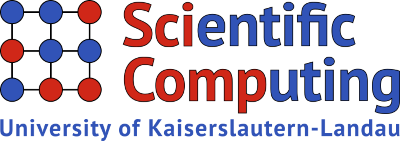Date and Place: Thursdays and hybrid (live in 32-349/online via Zoom). For detailed dates see below!
Content
In the Scientific Computing Seminar we host talks of guests and members of the SciComp team as well as students of mathematics, computer science and engineering. Everybody interested in the topics is welcome.
List of Talks
Event Information:
-
Thu22Nov2018
SC Seminar: Simon Extra
11:30SC Seminar Room 32-349
Simon Extra, Brandenburg University of Technology Cottbus-Senftenberg
Title:
Preliminary Core Engine Design by Cascaded Optimization ProcessesAbstract:
Design of aero engines is a rather complex process using sophisticated software tools for obtaining optimal performance. Several projects involving the application of optimization tools to aero engine design have been undertaken to improve the design workflow. Most of these projects, however, focused on the optimal design of a specific component of the core engine only, where processes for compressor, combustor and turbine were based on proven preliminary design tools and yielded convincing results and improvements. This reflects the current engine design approach where optimization of components is performed separately by teams of specialists. Interfaces between the components are defined by an initial performance calculation and fixed throughout component optimization. This restricts the design space substantially and provides no information about the quality of the interface definitions used.
To overcome these limitations, the design space has to be extended and a coupled method for preliminary core engine design has to be used: Such an approach will be proposed and discussed in the presentation. It is based on collaborative optimization (CO) which allows a separate optimization of all component, whilst still observing overall optimization goals for the core engine. The strategy influences the interfaces between the components and coordinates the subtasks through a global optimizer to enforce a consistent, optimal solution. The subtasks use the component optimization processes already developed and tested, which had to be modified for implementing and coupling them in an overall automated optimization process.
